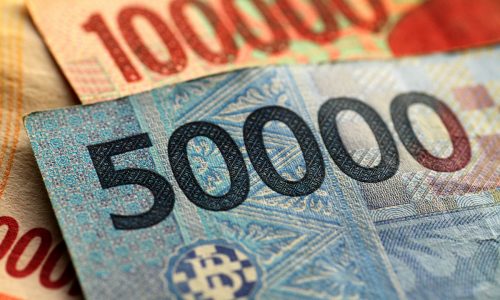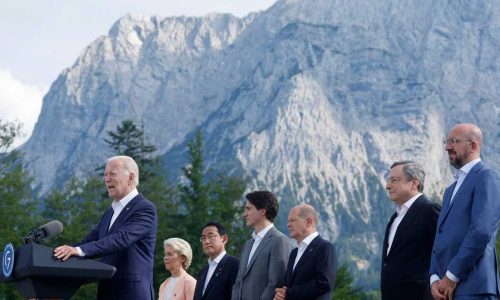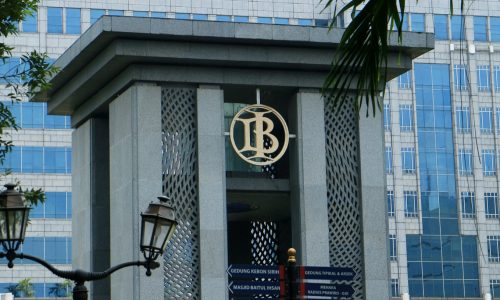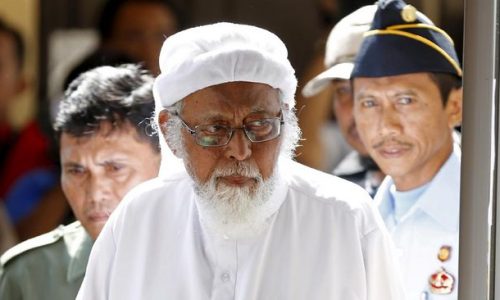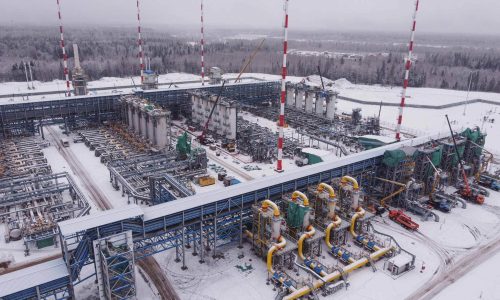Integration for ports connectivity
PT Pelabuhan Indonesia (Pelindo) is a state-own seaport company founded in 1992. The company envisioned of becoming a world-class integrated maritime ecosystem leader and realizing a national maritime ecosystem network through increasing network connectivity and service integration. The vision is to support the country’s economic growth as small ports across Indonesia become transit points and trading hubs that brought together traders from various nationalities, thus becoming big trading ports.
Pelindo operate ports in four areas across Indonesia:
- Pelindo I is responsible for ports in the provinces of Nanggroe Aceh Darussalam, North Sumatra, Riau and the Riau Islands
- Pelindo II covers 10 provinces, namely West Sumatra, Jambi, South Sumatra, Bengkulu, Lampung, Bangka Belitung, Banten, Jakarta, West Java and West Kalimantan
- Pelindo III includes 7 provinces, namely East Java, Central Java, South Kalimantan, Central Kalimantan, Bali, NTB and NTT
- Pelindo IV comprises 11 provinces, namely East Kalimantan, North Kalimantan, South Sulawesi, Central Sulawesi, Southeast Sulawesi, Gorontalo, North Sulawesi, Maluku, North Maluku, Papua and West Papua.
Each Pelindo has branches and subsidiaries to manage its business. Pelindo I, II, III, IV are non-listed state-owned companies whose shares are 100% owned by the Ministry of State-Owned Enterprises (SOEs) representing the state.
Pelindo II serves as the holding company while and the three others (Pelindo I, III and IV) act as sub-holdings. The establishment of sub-holdings that manage business clusters is to increase Pelindo’s service capacity and business efficiency.
The company aims to connect ports across the globe with the world’s largest archipelago with a long history of maritime influence on the planet. Pelindo is a world-class port that offers coordinated administrations between ports in Indonesia.
Pelindo as a company, resulting from this integration, is an essential strategic initiative of the government as a shareholder to realize national connectivity and a stronger logistics network. Maritime connectivity – both the network between ports inside the country, just as between ports at home and abroad – will increase.
By having better strategic control and being upheld by solid financial capabilities, Pelindo’s operation will be more coordinated, standardized and productive with the goal that it will help the local area, particularly Pelindo’s clients. The integration of Pelindo creates a synergy effect between each port and operational standardization and more efficient business processes. After that, the performance of the port will improve, affecting the social and economic welfare of the country. Pelindo’s debt rating in 2021 was AAA rating with a stable outlook from PT Pemeringkat Efek Indonesia (Pefindo), a credit rating agency.
Business units, board of commissioners and directors
In doing its business, Pelindo is supported by 4 business units, namely:
- Pelindo Container Terminal;
- Pelindo Multi Terminal;
- Pelindo Maritime Services;
- Pelindo Logistics Solutions.
There are four main business clusters of Pelindo, namely:
- Container Cluster;
- Non-container cluster;
- Logistics cluster & coastal area development (hinterland);
- Marine clusters, equipment and port services.
The business focuses on improving the capabilities and expertise of human resources working in each cluster so that they can work more efficiently and increase customer satisfaction. Once this happens, it will open up a wider market share and increase company profits. These businesses operate in goods service, providing wharf, warehouse, stacking yard, receiving/delivery; and ship services include mooring services, scout services, delay services, water services, garbage and waste. Furthermore, other services include port pass, port equipment maintenance services, land, building, water and electricity rental services.
The board of commissioners and directors in 2021:
- Marsetio as Independent Commissioner;
- Irma Suryani Chaniago as Independent Commissioner;
- Heru Sukanto as Independent Commissioner;
- Antonius Rainier Haryanto as Commissioner;
- R. Agus H. Purnomo as Commissioner;
- Sudung Situmorang as Commissioner;
- Didi Sumedi as Commissioner;
- Arif Suhartono as President Director;
- Hambra as Vice President Director;
- Mega Satria as Director of Finance and Risk Management;
- Ihsanuddin Usman as Director of Human Resources General;
- Prasetyo as Director of Strategy;
- Boy Robyanto as Director of Investments;
- Putut Sri Muljanto as Managing Director.
Pelindo I – Aceh Darussalam, North Sumatra, Riau and the Riau Islands
Pelindo I manages ports in Nanggroe Aceh Darussalam, North Sumatra, Riau and the Riau Islands. Pelindo I was formed based on PP No. 56/1991, while the name Pelindo I was determined based on Notarial Deed No. 1 Dated December 1, 1992.
In 2018, Pelindo I’s operating revenues stood at IDR 3,114,480 million while in 2019, it decreased to IDR 3,104,233 million and again decreased to IDR 3,083,847 million in 2020.
The year 2019 saw an increase in ship call tonnages, from 131.58 million GT (gross tonnage) to 160.66 million GT in 2020. Increase in Container Loading/Unloading from 1.08 million boxes in 2019 to 1.16 million boxes in 2020. In TEUs (twenty foot equivalent units), there’s also a 6.38% increase from 1.33 million TEUs in 2019 to 1.42 million TEUs in 2020.
Board of Management as of December 2020:
- Dani Rusli Utama as President Director;
- Ridwan Sani Siregar as Director of Operations and Commercial;
- Hosadi Apriza Putra as Director of Engineering;
- Prasetyo as Director of Business Transformation and Development;
- Henny Naldi as Director of Human Resources and General Affairs;
- Roy Leonard as Director of Finance.
Subsidiaries:
- PT Prima Terminal Petikemas, 70%;
- PT Prima Indonesia Logistik, 99,67%;
- PT Prima Multi Terminal 55%;
- PT Prima Pengembangan Kawasan 90%;
- PT Prima Husada Cipta Medan 99,68%;
- PT Prima Multi Peralatan 99%, indirect ownership through PT Prima Indonesia Logistik;
- PT Prima Tangki Indonesia 20%, indirect ownership through PT Prima Indonesia Logistik;
- PT Terminal Petikemas Indonesia 25%, association entity.
Pelindo II – West Sumatra, Jambi, South Sumatra, Bengkulu, Lampung, Bangka Belitung, Banten, DKI Jakarta, West Java and West Kalimantan
Pelindo II manages ports in 10 provinces, namely West Sumatra, Jambi, South Sumatra, Bengkulu, Lampung, Bangka Belitung, Banten, DKI Jakarta, West Java and West Kalimantan. Pelindo II was established based on PP No. 57/1991. Pelindo II was established based on the Notary Deed of Imas Fatimah SH, No. 3, dated December 1, 1992.
In 2018, the company earned IDR 11,436,700,894, and in 2019 it decreased to IDR 11,141,752,225, and then decreased to IDR 10,453,610,044 in 2020.
In 2018, the companies ship calls reached 35,771 calls with 224,298,619 GT. It decreased 33,082 calls with 209,121,201 GT in 2019, it further decreased the following year in 2020 to 28,856 calls and 178,410,371 GT.
The Container Flow in 2018, reached 7,640,312 TEUs. It increased to 7,660,485 TEUs but it dropped rapidly to 6,921,750 TEUs.
The Passenger Flow in 2018, reached 714,931 persons and it increased to 1,138,179 persons then it dropped down drastically to 333,026 passengers.
In 2018, its subsidiaries:
- PT Pelabuhan Tanjung Priok (PTP), shareholder: Pelindo II 55%;
- PT Pengembang Pelabuhan Indonesia (PPI), shareholder: Pelindo II 99%;
- PT Multi Terminal Indonesia (MTI), shareholder: Pelindo II 99%;
- PT Jasa Armada Indonesia Tbk, shareholder: Pelindo II 76,89%;
- PT Pengerukan Indonesia (Rukindo), shareholder: Pelindo II 99,9%;
- PT Rumah Sakit Pelabuhan (RSP), shareholder: 99,88%;
- PT Indonesia Kendaraan Terminal (IKT), shareholder: Pelindo II 77,38%;
- PT Integrasi Logistik Cipta Solusi (ILCS), shareholder: Pelindo II 51%
- PT Electronic Data Interchange Indonesia (EDII), shareholder: Pelindo II 51%
- PT Energi Pelabuhan Indonesia (EPI), shareholder: Pelindo II 55%;
- PT IPC Terminal Peti Kemas (IPC TPK), shareholder: Pelindo II 99%;
- PT Jasa Peralatan Pelabuhan Indonesia (JPPI), shareholder: Pelindo II 99%;
- PT Pendidikan Maritim dan Logistik Indonesia (PMLI), shareholder: Pelindo II 99,99%;
- PT Pelabuhan Indonesia Investama (PII), shareholder: Pelindo II 99,99%.
Management board:
- Moermahadi Soerja Djanegara as President Commissioner;
- Montty Girianna as Commissioner;
- Suaidi Marasabessy as Independent Commissioner;
- Kushari Suprianto as Commissioner;
- D. Andhi Nirwanto as Commissioner;
- R. Agus H. Purnomo as Commissioner;
- Nurachman as Independent Commissioner;
- Arif Suhartono as President Director.
Pelindo III – East Java, Central Java, South Kalimantan, Central Kalimantan, Bali, NTB and NTT
Pelindo III manages ports in 7 provinces, namely East Java, Central Java, South Kalimantan, Central Kalimantan, Bali, West Nusa Tenggara and East Nusa Tenggara. The establishment of Pelindo III is stated in the Notary Deed of Imas Fatimah, SH No. 5 dated December 1, 1992, based on PP No. 58/1991.
In 2020, Pelindo III provided ship traffic productions up to 74,862 units and 300,715,594 GT with ship service revenue of IDR 964.73 trillion.
Its container traffic production reached 4,048,422 boxes and 5,080,686 TEUs with container service revenue of IDR 2.46 trillion.
In its production of non-container, the general cargo reached 7,940,509 tons, dry bulk of 27,207,134 tons, liquid bulks of 30,091,651 tons while the non-container revenue reached IDR 909.21 billion.
The number of passengers reached 1,607,916 people. In 2018, its operating revenues reached IDR 10.175 billion, decreased to IDR 9.776 billion in 2019, and further decreased to IDR 9.320 billion in 2020.
Subsidiaries as of 2019:
- PT Terminal Petikemas, shareholders: Surabaya Pelindo III (99.50%) and Kopelindo III (0.50%). Subsidiary: PT Berlian Manyar Stevedore (BMST) 99%;
- PT Pelindo Marine Service, shareholders: Pelindo III (98.23%) and Kopelindo III (1.77%). Subsidiaries: PT Alur Pelayaran Barat Surabaya (APBS) 90%, PT Pelindo Energi Logistik (PEL) 90%, PT Berkah Multi Cargo (BMC) 99%;
- PT Terminal Teluk Lamong, shareholders: Pelindo III (99.50%) and Kopelindo III (0.50%). Subsidiary: PT Lamong Energi Indonesia (LEI) 51%;
- PT Pelindo Daya Sejahtera, shareholders: Pelindo III (90.00%) and Kopelindo III (10.00%). Subsidiary: PT Tanjung Emas Daya Sejahtera (TEDS) 99%;
- PT Berlian Jasa Terminal Indonesia, shareholders Pelindo III (96.84%) and Kopelindo III (3.16%). Subsidiaries: PT Pelindo Properti Indonesia (PPI) 99%, PT Berkah Industri Mesin Angkat (BIMA) 60%, PT Terminal Curah Semarang (TCS) 51%;
- PT Alur Pelayaran Barat Surabaya, shareholders: PT Pelindo Marine Service (90,00%), Van Oord Dredging and Marine Contractor BV(5,00%), PT Gerbang Samudra Utama (5,00%);
- PT Pelindo Energi Logistik, shareholders: PT Pelindo Marine Service (90.00%), PT Pelindo Energi Logistik (shares buyback)(9.00%), PT Berlian Jasa Terminal Indonesia (1.00%);
- PT Berlian Manyar Sejahtera, shareholders: PT Berlian Jasa Terminal Indonesia (60.00%), PT Usaha Era Pratama Nusantara (40.00%);
- PT Pelindo Properti Indonesia, shareholders: PT Berlian Jasa Terminal Indonesia (99,91%), Kopelindo III (0,09%);
- PT Berkah Industri Mesin Angkat, shareholders: PT Berlian Jasa Terminal Indonesia (90.00%), Kopelindo III (10.00%);
- PT Tanjung Emas Daya Sejahtera, shareholders: PT Pelindo Daya Sejahtera (99.00%), Kopelindo III (1.00%);
- PT Lamong Energi Indonesia, shareholders: PT Terminal Teluk Lamong (99.00%), Kopelindo III (1.00%);
- PT Berkah Multi Cargo, shareholders: PT Pelindo Marine Service (99.74%), Kopelindo III (0.26%);
- PT Pelindo 3 – Terminal Peti Kemas, shareholders: PT Terminal Petikemas Surabaya (99.00%), Kopelindo III (1.00%);
- PT Prima Citra Nutrindo, shareholders: PT Pelindo Husada Citra (70.00%), PT Berlian Jasa Terminal Indonesia (30.00%);
- PT Terminal Curah Semarang, shareholders: PT Berlian Jasa Terminal Indonesia (51.00%), PT Andahanesa Abadi (49.00%);
- PT Berkah Kawasan Manyar Sejahtera, shareholders: PT Berlian Jasa Terminal Indonesia (40.00%), PT Usaha Era Pratama Nusantara (60.00%);
- PT Terminal Nilam Utara, shareholders: PT Berlian Jasa Terminal Indonesia (40.00%), PT Andahanesa Abadi (60.00%);
- PT Pelindo Husada Citra, shareholders: Pelindo III (98.73%), Kopelindo III (1.27%), subsidiary: PT Prima Citra Nutrindo (PCN) 70%;
- PT Portek Indonesia, shareholders: Pelindo III (49.00%), Portek System and Equipment Ltd. (51.00%);
- PT Ambang Barito Nusapersada, shareholders: Pelindo III (40.00%), PT Bangun Banua Kalimantan Selatan (60.00%);
- PT Jasa Marga Bali Tol, shareholders: Pelindo III (17.58%), PT Jasa Marga (Persero) Tbk. (55.00%), Bali Provincial Government (8.01%), Badung Regional Government (8.01%), PT Angkasa Pura I (Persero) (8.00%), PT Adhi Karya (Persero) Tbk. (1.00%), PT Hutama Karya (Persero) (1.00%), PT Pengembangan Pariwisata Indonesia (Persero) (1.00%), PT Wijaya Karya (Persero) Tbk (0.40%);
- PT Terminal Peti Kemas Indonesia, shareholders: Pelindo I (25.00%), Pelindo II (25.00%), Pelindo III (25.00%), Pelindo IV (25.00%);
- PT Lamong Nusantara Gas, shareholders: Pelindo I (25.00%), Pelindo II (25.00%), Pelindo III (25.00%), Pelindo IV (25.00%).
Pelindo IV – East Kalimantan, North Kalimantan, South Sulawesi, Central Sulawesi, Southeast Sulawesi, Gorontalo, North Sulawesi, Maluku, North Maluku, Papua and West Papua
Pelindo IV manages ports in 11 provinces, namely East Kalimantan, North Kalimantan, South Sulawesi, Central Sulawesi, Southeast Sulawesi, Gorontalo, North Sulawesi, Maluku, North Maluku, Papua and West Papua. Pelindo IV was formed based on PP No. 59/1991. While the deed of formation was Deed of Notary Imas Fatimah, SH no. 7 dated December 1, 1992.
In 2018, the company received IDR 3,305,799 million and increased the following year in 2019 to IDR 3,661,291 million.
In 2017, its ship flow was 54,392 calls and GT of 340,796,883 while in 2018 it increased to 57,230 calls and 360,951,015 GT. The next year in 2019, the number is still increasing to 65,932 calls and 407,598,886 GT.
The Goods Flow in 2017, numbered at 50,138,024 Ton/M3, it decreased to 46,226,504 Ton/M3, but it increased the following year in 2019 to 53,335,074 Ton/M3.
The Container flow in 2017 reached, 1,732,078 boxes or 23,142,956 tons and it increased to 1,870,214 boxes or 25,333,313 tons, the next year it increased to 1,958,902 boxes and 25,827,128 tons.
The Passenger Flows in 2017 was 5,375,490 people and it increased to 5,665,851 people in 2018, later the next year in 2019 it increased drastically to 6,556,644 people.
Board of Management:
- Agus Purwanto as President Commissioner;
- Syamsu Alam as Independent Commissioner;
- Heri Purnomo as Commissioner;
- Wihana Kirana Jaya as Commissioner;
- Neil Iskandar Daulay as Commissioner;
- Suratto Siswodihardjo as Commissioner;
- Farid Padang as President Director;
- Yon Irawan as Director of Finance;
- Prakosa Hadi Takariyanto as Director of Technic;
- Tony Hajar Andenoworih as Director of Business Transformation and Development;
- Muhamad Asyhari as Director of Human Resources;
- Riman S. Duyo as Director Operations & Commercial.
Subsidiaries:
- PT Kariangau Kaltim Terminal 50%;
- PT Equiport Inti Indonesia 95%;
- PT Nusantara Terminal Services 99%.
Joint Ventures
In 2017, Pelindo I and II established a joint venture (JV) between Pelindo I through PT Prima Indonesia Logistik and Pelindo II through PT IPC Terminal Petikemas, to operate Batu Ampar Port, Batam, to manage the port.
In 2016, the port of Rotterdam signed a joint venture agreement with Pelindo I in the construction of the Kuala Tanjung seaport. Furthermore, Rotterdam signed a memorandum of understanding (MoU) with Pelindo II and JakPro in the expansion of Jakarta Port.
In 2017, Pelindo II entered into a joint venture with Japan, in the construction of a special automotive port in West Java. Indonesia shares 51% and Japan 49% shares.
In 1999, Pelindo II and Hutchinson Ports Holding formed a joint venture company called Jakarta International Container Terminal in Jakarta. With Hutchinson Port Holding Group 51% shares, Pelindo II 48.9% and 0.1% owned by the Maritime Employees Cooperative.
In 2018, Pelindo III formed a joint venture with a Singapore-based port operator, PSA International, and the Chinese Construction Company as well as China Communication Construction Engineering to build Kenal International Port in Central Java.



